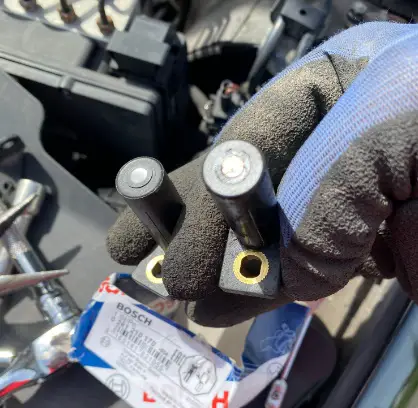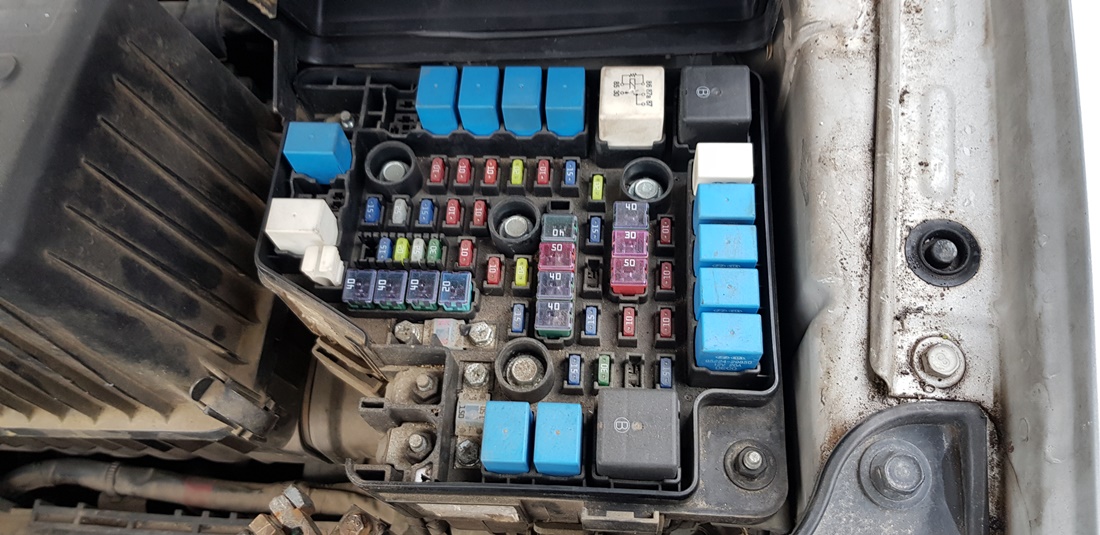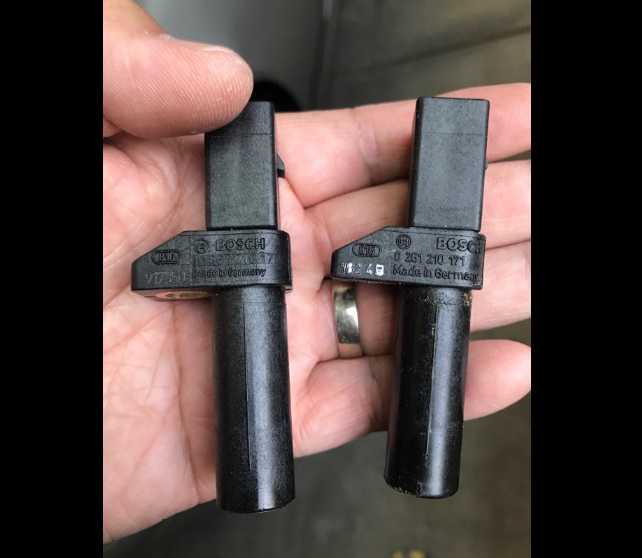It’s a question that has been asked by car owners for years – can you use brake cleaner as starting fluid? The answer is yes, you can. Brake cleaner is a great substitute for starting fluid, and it’s a lot cheaper too!
In this article, I will be talking about how to use brake cleaner as a starting fluid. Keep in mind that this should be only done in case of an emergency.
Key Takeaway
- While brake cleaner can be used as a starting fluid in emergency situations, it is not recommended as a first choice due to potential safety risks and possible damage to the vehicle.
- Brake cleaner should be sprayed into the car’s air intake system, specifically the throttle body or carburetor, to help start the engine, although this is not recommended due to potential harm to the vehicle.
- While brake cleaner can be used to clean oil off an engine and it evaporates quickly, its harsh and solvent-rich nature may lead to corrosion of metals, potential harm to rubber seals and plastics, and can decompose into harmful gases when burned, it may potentially damage your engine.
What is a Brake Cleaner?
A brake cleaner is a powerful solvent designed to effectively remove oil, grease, and other contaminants from your vehicle’s brake parts.
Speaking as a mechanic, I can tell you that maintaining the cleanliness of your brakes is crucial for their optimal performance.
Brake cleaner is a tool we use frequently in the automotive industry for this purpose. It’s a degreasing formula, typically available in a spray can, that is designed to dissolve and remove dirt, oil, grease, brake fluid, and other contaminants from your brake parts such as rotors, calipers, pads, and lines.
The main advantage of brake cleaner is its quick-drying nature, which leaves no residue behind.
This ensures that after cleaning, your brake parts are free of any material that could impair their function.
However, due to its strong chemical composition, it should be used with care, ensuring not to get it on paint or plastic parts as it can cause damage.
Can You Use Brake Cleaner As Starting Fluid?

Brake cleaner, while it can technically be used as a starting fluid in dire circumstances, is not a recommended choice due to the potential risks and damage it can cause to your vehicle’s engine.
To expand on this, brake cleaner is a powerful solvent designed specifically to clean off grease, oil, and dust from brake parts. It’s not intended for use as a starting fluid.
The chemicals in brake cleaner are harsh and can potentially harm the internal components of an engine if used improperly. This includes corrosion of metals, and damage to rubber seals and plastics, and when burned, they can decompose into harmful gases.
As a mechanic, I’ve seen situations where people have used brake cleaner as a starting fluid. While it might help to start the engine in the short term, the long-term effects can be detrimental to the health of the engine.
In my experience, it’s always best to use products for their intended purpose to avoid any potential damage or safety risks.
If you find yourself in a situation where you’re considering using brake cleaner as a starting fluid, I’d strongly advise against it. Instead, try to source the correct product or seek professional assistance.
Where Do You Spray Brake Cleaner To Start a Car?

Despite brake cleaner’s ability to help start a car in extreme circumstances, it is not recommended to spray it anywhere in or on your vehicle for this purpose due to the potential risks and damage it can cause.
As a mechanic, I need to stress that brake cleaner is not designed to be used as a starting fluid. It is a highly effective solvent that is meant to remove grease, oil, and dust from brake parts, not to help ignite an engine.
The chemicals in brake cleaners are harsh and can lead to the corrosion of metals, damage rubber seals and plastics, and when burned, decompose into harmful gases.
In my professional experience, I have come across people who have sprayed brake cleaner directly into their air intake in an effort to start their vehicles. While this might give the desired result in the short term, the long-term effects on the engine can be devastating.
It’s always best to use products as they are intended to avoid any potential damage or safety risks. If you’re having trouble starting your car, I would advise using a proper starting fluid or seeking professional assistance rather than resorting to brake cleaner.
Will Brake Cleaner Hurt Your Engine?

Brake cleaner can potentially harm your engine if it’s not used properly, primarily due to its harsh chemical composition which may lead to corrosion of metals and other damage.
As a mechanic, I must stress that while brake cleaner is a powerful solvent designed for removing grease, oil, and dust from brake parts, it’s not meant to be used on engine components.
Its harsh chemical composition can cause damage if used improperly, such as corroding metals, and damaging rubber seals and plastic components, and when burned, it can decompose into harmful gases.
While I’ve seen people using brake cleaner to clean oil off an engine or in the engine compartment, it’s important to remember that these chemicals are potent and should be handled with care.
It’s always best to use products as they’re intended to avoid any potential damage or safety risks. If you’re considering using brake cleaner on your engine, I’d advise against it and instead recommend using a product specifically designed for this purpose, like an engine degreaser.
This will ensure that your engine remains in good health and avoids unnecessary damage.
What Are The Safe Alternatives To Starting Fluid
| Alternative to Starting Fluid | Description | Considerations |
|---|---|---|
| WD40 | WD40 is a lubricant and water-displacing substance that can ignite under pressure and heat. It can be used to help start engines that are having trouble turning over. | Its primary function is not as a starting fluid, so use it sparingly and only when necessary. |
| Hairspray | Hairspray contains propellants that can ignite and help start an engine. | Hairspray can leave residues that might harm your engine over time. It’s not recommended for regular use. |
| Carburetor Cleaner | Carburetor cleaner is designed to remove deposits in your carburetor but it also has the ability to ignite and can help in starting an engine. | This should be used with caution as it’s not its intended use, and prolonged or repeated use can potentially damage your engine. |
| Dry Silicone Spray | Dry silicone spray is a safe starting fluid alternative, especially for diesel with working glow plugs. It’s primarily propane, which is easier on the engine than ether. | N/A |
| Premixed Gas | Premixed gas from lawn equipment or chainsaws can be used instead of starting fluid. | Make sure it’s premix to avoid drying out the cylinder walls of your engine. |
Safe alternatives to starting fluid include WD40, hairspray, carburetor cleaner, dry silicone spray, and premixed gas, each offering its own benefits and considerations.
WD40
WD40 is a popular alternative to starting fluid. As a mechanic, I’ve seen it used successfully to help start engines that are having trouble turning over.
It’s a lubricant and water-displacing substance that can ignite under pressure and heat, making it a suitable substitute. However, do remember that its primary function is not as a starting fluid, so use it sparingly and only when necessary says WD40.
Hairspray
Hairspray can also be used as an alternative to starting fluid. It contains propellants that can ignite and help start an engine.
However, it’s important to note that hairspray can leave residues that might harm your engine over time. Therefore, while it can work in a pinch, it’s not something I would recommend for regular use.
Carburetor Cleaner
Carburetor cleaner is another feasible substitute. It’s designed to remove deposits in your carburetor that can affect engine performance, but it also has the ability to ignite and can help in starting an engine.
Again, this should be used with caution as it’s not its intended use, and prolonged or repeated use can potentially damage your engine says Manol.
Dry Silicone Spray
Dry silicone spray is a safe starting fluid alternative, especially for diesel with working glow plugs. It’s primarily propane, which is easier on the engine than ether (the main component in most starting fluids).
Premixed Gas
Premixed gas from lawn equipment or chainsaws can also be used instead of starting fluid. This can work great, but make sure it’s premix to avoid drying out the cylinder walls of your engine.
Are Carb and Brake Cleaners The Same?

Carburetor cleaner and brake cleaner, while both powerful solvents, are not the same and are designed for different purposes in automotive maintenance.
As a mechanic, I often use these two types of cleaners, for distinct jobs. Brake cleaner is formulated to clean brake parts, removing grease, oil, and dust that can impair your brake’s performance.
It’s a highly effective degreaser and, due to its potent chemical composition, it evaporates quickly leaving no residue behind.
On the other hand, carburetor cleaner is designed to remove deposits that can build up in your carburetor and throttle body. These deposits can affect the air-fuel mixture in your engine, leading to poor performance or even engine stalling.
While both cleaners are powerful solvents, they are formulated differently to tackle specific types of grime and residues found in their respective areas of use.
Therefore, they should not be used interchangeably. Always use the cleaner specifically designed for the job at hand to ensure the best results and to avoid any potential damage to your vehicle’s components.
FAQs
Q: Why is brake cleaner not suitable for use as a starting fluid?
A: Brake cleaner is not suitable for use as a starting fluid because it does not contain the necessary ingredients to create combustion. Starting fluids are formulated to provide a flammable substance that can easily ignite to start an engine. Using brake cleaner as a starting fluid can result in engine damage and safety hazards.
Q: What is starting fluid?
A: Starting fluid, also known as starter fluid, is a highly flammable liquid that is used to assist in starting an engine, especially in cold weather conditions. It contains volatile hydrocarbons that vaporize and ignite easily to provide a quick burst of energy to start the engine.
Q: Can brake cleaner damage other components if used as a starting fluid?
A: Yes, using brake cleaner as a starting fluid can potentially damage other components of the engine. Brake cleaner is not formulated to work as a starting fluid and may have different chemical compositions that can harm the engine’s internal parts. It is always best to use products as intended to avoid any unnecessary damage or safety risks.
Conclusion and final thoughts
In conclusion, using brake cleaner as a starting fluid is not recommended due to its harsh chemicals and potential damage to engine components.
While it may provide a quick fix in emergency situations, it is important to use the proper starting fluid specifically designed for engines.
It is always best to follow manufacturer recommendations and avoid taking shortcuts that could ultimately cause more harm than good.




